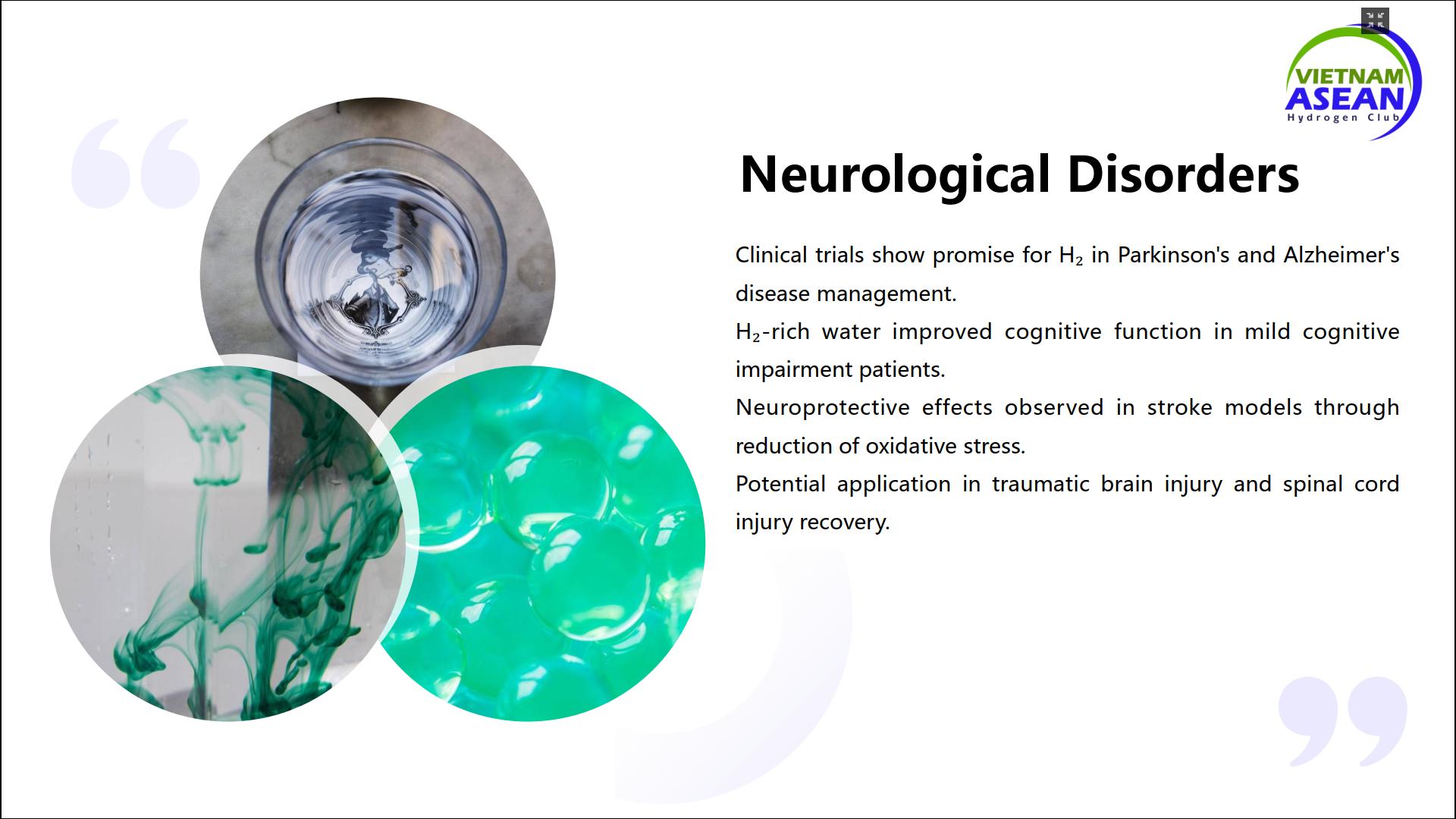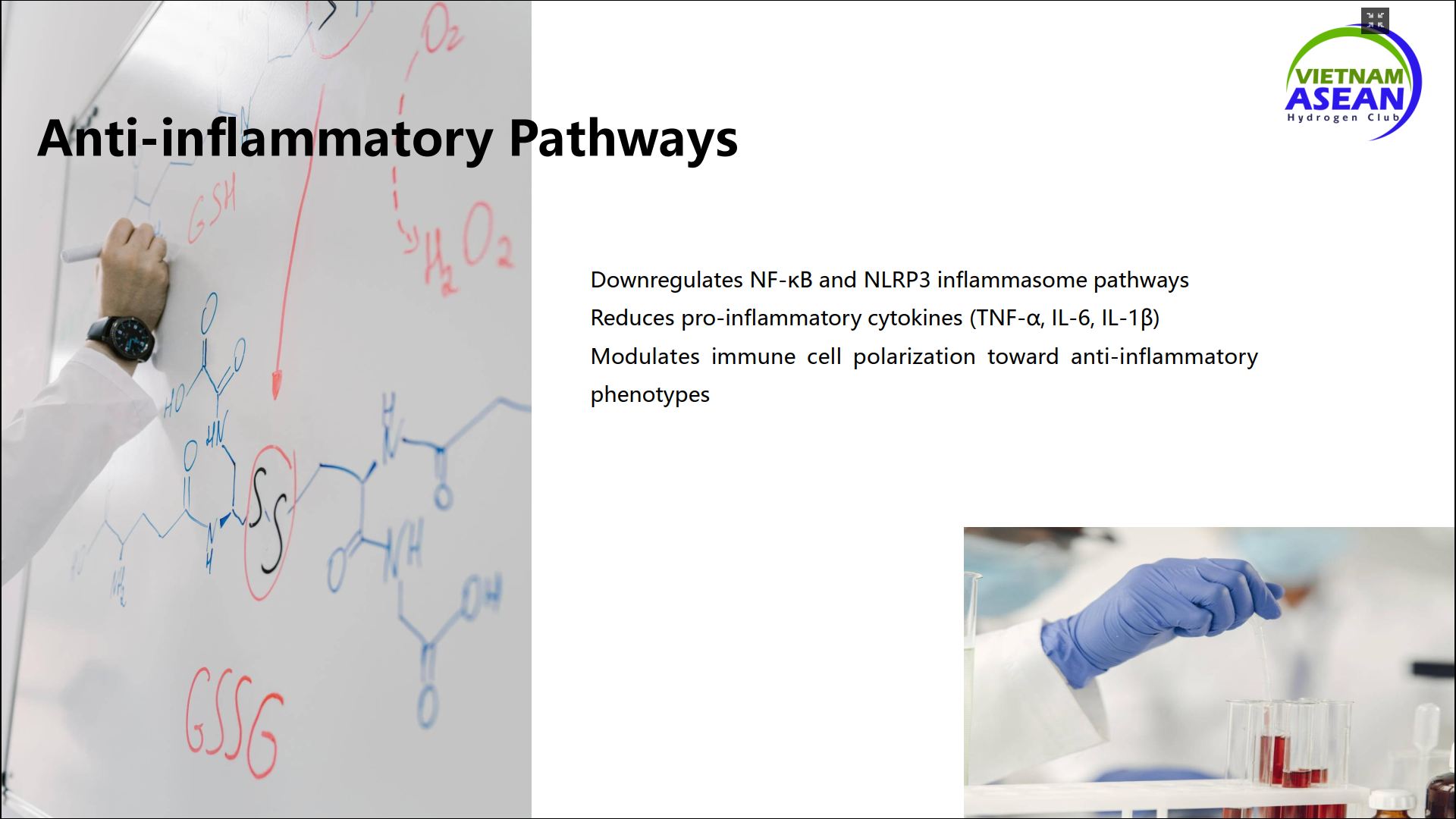The Hydrogen Health Revolution: From Pollution Crisis to a New Frontier in Medicine

Ho Chi Minh City, October 17, 2025 — At the Vietnam–Japan Hydrogen Workshop 2025, held at HUTECH University, Mr. Andy Lei, representing the Vietnam ASEAN Hydrogen Club (VAHC), delivered one of the event’s most thought-provoking presentations: “Hydrogen Health Revolution: From Pollution Crisis to Medical Breakthrough.” His talk explored the science, therapeutic mechanisms, and emerging applications of hydrogen in improving human health — a field that is rapidly evolving from experimental research into clinical and commercial reality.

A Global Pollution and Health Emergency
Mr. Lei began by underscoring a sobering reality: humanity is living amid a pollution-induced health crisis.
According to World Health Organization (WHO) data, 99% of the world’s population breathes air exceeding safe pollution thresholds, leading to an estimated 7 million premature deaths every year. Simultaneously, more than 2 billion people worldwide depend on contaminated drinking water, often tainted with heavy metals such as lead — substances that accumulate in vital organs and trigger chronic diseases, neurological damage, and metabolic dysfunction.
“Pollution has become a silent killer,” Mr. Lei warned, “and combating it requires more than environmental regulation — it demands innovation at the molecular level.”

Hydrogen: The Smallest Molecule with the Biggest Potential
In what he called “the molecular medicine of the 21st century,” Mr. Lei explained the biochemical mechanisms through which hydrogen exerts therapeutic effects.
Hydrogen (H₂) functions as a selective antioxidant, neutralizing harmful free radicals such as hydroxyl radicals without disrupting beneficial oxidative processes necessary for metabolism.
Its small molecular size allows it to penetrate cell membranes, reaching mitochondria and nuclei — where it protects DNA, enhances cellular repair, and regulates key genetic pathways.
Hydrogen therapy activates the Nrf2 pathway, which strengthens the body’s natural antioxidant defenses, and modulates AMPK/mTOR signaling, which plays a crucial role in cellular metabolism and autophagy. It also downregulates inflammatory responses by inhibiting NF-κB and NLRP3 inflammasome pathways, reducing cytokines like TNF-α, IL-6, and IL-1β.
“Hydrogen works intelligently,” Mr. Lei noted, “targeting only the harmful oxidative and inflammatory processes, while preserving the body’s natural balance.”
Medical and Clinical Applications: From Brain Health to Cancer Care
Hydrogen’s medical potential, once confined to laboratory studies, is now entering clinical application. Mr. Lei presented a range of ongoing and completed studies:
-
Neurological disorders: Hydrogen-rich water and inhalation therapy have shown improvements in patients with Parkinson’s and Alzheimer’s disease, and in animal models of stroke and spinal cord injury.
-
Cardiovascular diseases: Clinical trials demonstrate that hydrogen inhalation can reduce infarct size by up to 40%, improve endothelial function, and limit ischemia–reperfusion injury during cardiac surgery.
-
Oncology support: Hydrogen therapy alleviates the side effects of chemotherapy and radiotherapy — reducing fatigue, nausea, and oxidative stress — and may even enhance the efficacy of certain cancer treatments.
-
Metabolic and immune health: Regular intake of hydrogen-rich water has been shown to reduce oxidative stress, improve rheumatoid arthritis symptoms, and enhance athletic recovery by lowering lactate buildup.
These findings, he argued, position hydrogen not as a cure-all, but as a synergistic, non-invasive adjunct therapy that supports the body’s innate healing mechanisms.

Future Outlook: A New Medical Market Emerging
Looking ahead, Mr. Lei highlighted that the global medical hydrogen market is projected to reach USD 1.5 billion by 2030, driven by advances in nanotechnology, hydrogen generators, and smart delivery systems.
Innovations include nanocarrier platforms for targeted organ-specific hydrogen release, implantable micro-generators for chronic conditions, and smart wearable devices capable of monitoring hydrogen concentration in the body.
However, he cautioned that challenges remain — particularly in regulatory frameworks, reimbursement policies, and healthcare integration.
“Hydrogen medicine is entering the same transformative phase solar energy went through two decades ago,” Mr. Lei said. “It’s clean, effective, and ready — but it needs cross-sector collaboration to reach people.”
Conclusion: Bridging Clean Energy and Human Health
Mr. Andy Lei concluded with a compelling vision: the convergence of clean energy and medical innovation. Hydrogen, once seen solely as an industrial fuel, is now being redefined as a biological fuel for human resilience.
Its potential extends beyond reducing emissions — it may help restore the biological systems those emissions have damaged. In essence, hydrogen could become both the medicine and the message of the 21st century: a molecule linking planetary health and human well-being.
“The Hydrogen Health Revolution has begun,” Mr. Lei concluded. “What started as an energy transition may very well become a health transformation.”





